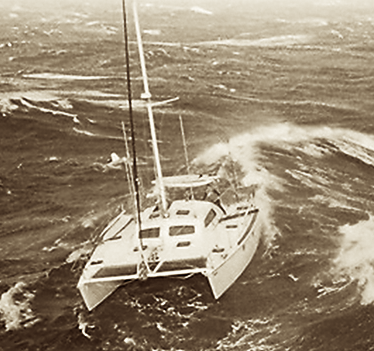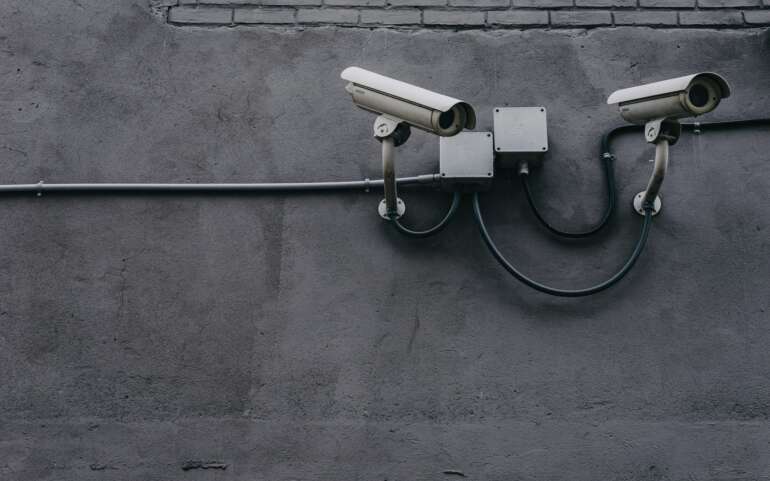Vandalism: A Growing Concern
While the perpetrators in the Kaos case were apprehended, this does not necessarily mean the yacht owner will be compensated for the damages. Criminal fines may be imposed, but direct compensation for the owner is often not a part of the sentencing. In many cases, even if a successful verdict is reached, the damages may be difficult to recover.
In Australia, pursuing damages through a civil claim against the offenders can be complicated, costly, and time-consuming. Even if a claim is successful, recovering the full amount may be difficult. So, the best way to mitigate the risk of financial loss from vandalism is to ensure you have adequate marine insurance coverage.
Tip: Make sure your policy specifically covers malicious acts like vandalism.
The Importance of Marine Insurance

Given the difficulties in claiming damages through legal avenues and the unpredictable nature of the court system, ensuring that your boat is properly insured is critical. Marine insurance is governed by the Marine Insurance Act 1909 (MIA) in Australia, and not all insurance policies cover the full spectrum of risks.
Key Considerations for Boat Insurance:
- Comprehensive Coverage: Ensure your policy covers accidental damage, theft, loss, malicious damage, and more.
- Policy Terms: Review your policy regularly, especially as your boating activities evolve. Ensure you understand the geographical limits, modifications, and maintenance requirements.
- Accurate Boat Valuation: Get the value of your boat right to avoid financial loss. Ensure your policy reflects the true worth of your vessel.
Reminder: If you’ve made any modifications to your boat, let your insurer know to avoid invalidating the policy.
Understanding Your Boat’s Insurance Value
When it comes to insuring your boat, determining the correct valuation is essential. You’ll typically have two options:
- Agreed Value: A fixed sum agreed upon by you and the insurer, regardless of depreciation.
- Market Value: A value determined based on the boat’s current market price, factoring in depreciation.
The agreed value policy is often preferable because it eliminates disputes over the boat’s worth when you file a claim.
Mooring Risks and Insurance

When it comes to mooring, you might think your boat is safe as long as it’s properly docked. However, many insurance providers exclude coverage for damage caused while the boat is moored. This means you might not be covered if the mooring fails or if the boat causes damage to other vessels while docked.
What You Need to Know About Moored Vessel Insurance:
Always ask your insurer for specific coverage related to mooring failure or damage caused while the boat is moored.
Some insurers only cover damage that occurs while the boat is in use, not when it’s stationary at the marina.
Mooring requirements: Ensure that the mooring is professionally maintained, serviced annually, and suitable for your boat.
Pro Tip: Ask for a certificate from the mooring company confirming that the mooring is properly serviced.
Out-of-Water Insurance Considerations
Many maritime insurance policies do not cover damage to your boat while it’s out of the water, such as during repairs or maintenance. If you are hiring contractors to work on your boat, it’s important to ensure they are insured. If an uninsured contractor damages someone else’s property, you could be held liable.
Things to Consider:
- Waivers: Be cautious of waivers stating the operator or broker has no responsibility for damage to the boat or third-party property while the boat is out of the water.
- Contractor Insurance: Always ask to see the contractor’s insurance certificate to verify their coverage.
Legal Complexities and Insurance Causation
One unique aspect of maritime insurance is the definition of causation in claims. While proximate cause is the standard in most other types of insurance, maritime insurance policies may have a broader scope or different interpretation. It’s vital to understand the specific terms and exceptions of your insurance policy.
Questions to Ask Your Insurer:
- What does your policy cover in terms of causation?
- Are there any exceptions to the coverage that could affect your claim?
Final Thoughts: Protecting Your Boat
Enjoying your boat should be an experience free from worries, but with the rising risks of vandalism, mooring failures, and other potential damages, it’s crucial to prepare for the unexpected. Ensure you have the right insurance coverage to protect your vessel, and regularly review your policy to stay updated on any changes in your needs or in your insurer’s terms.
What You Can Do to Protect Your Vessel:
- Review Your Insurance Policy Regularly: Make sure your policy covers vandalism and all relevant risks.
- Check Mooring and Docking Security: Make sure the mooring is secure, professionally maintained, and insured.
- Stay Informed on Legal Procedures: Understand the complexities of legal claims, especially when operating in foreign jurisdictions.
- Consult with Insurance Professionals: Work with an expert marine insurance broker to tailor a policy that suits your needs.

